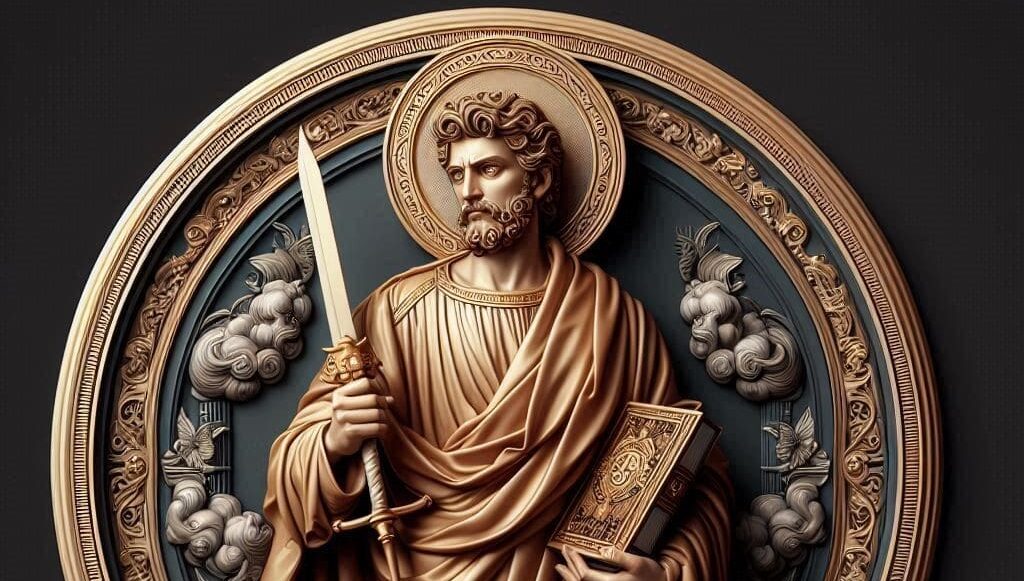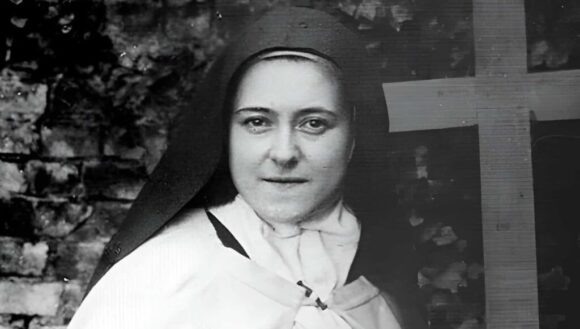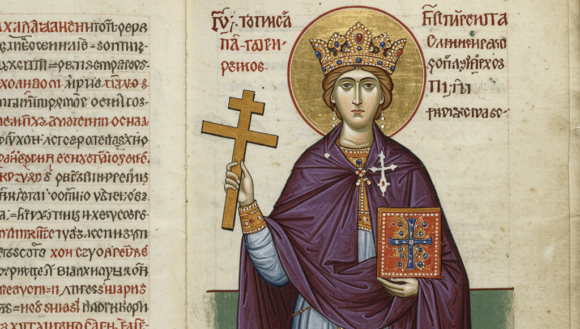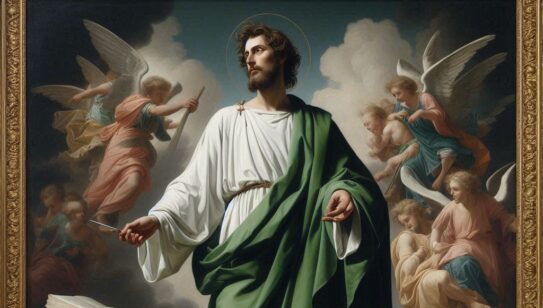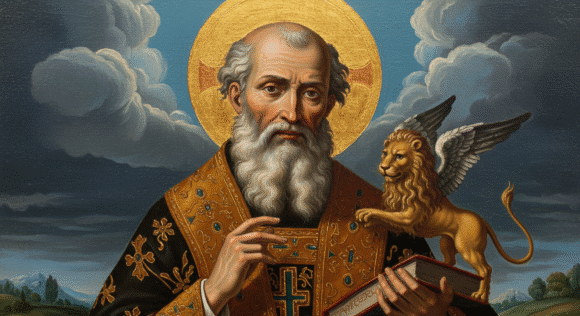Saint Paul the Apostle, originally known as Saul of Tarsus, is a towering figure of Christianity. His extensive missionary journeys and profound writings have left a mark on the Christian faith and its spreading throughout the ancient world. From a fervent persecutor of Christians to a devoted apostle of Jesus Christ, the story of Saint Paul is a testament of faith.
His contributions have resonated through centuries, making Saint Paul the Apostle a key subject of theological studies. This article delves into the life and legacy of Saint Paul, exploring his significance, teachings, and the lasting influence he had on the world.
The Early Life of Saul of Tarsus
Birth and Background
We remember Saul of Tarsus, who later became known as Saint Paul the Apostle, as a Greek-speaking Jew from Asia Minor. His birthplace, Tarsus, was not only a major city but also a hub of intellectual activity in eastern Cilicia, which was part of the Roman province of Syria during his adulthood. The significance of Tarsus in his formation cannot be overstated, as it provided a unique blend of cultural and religious influences that shaped his early life.
Cultural Influences
The cultural milieu of Tarsus was a melting pot of Greek, Roman, and Jewish traditions. Saul was exposed to a variety of philosophical thoughts and teachings, which later influenced his theological reflections. The city’s status as a center for education and philosophy meant that Saul received a robust education, likely including the study of Greek classics and the Jewish Scriptures.
Religious Upbringing
Saul’s upbringing was firmly rooted in Jewish tradition. He was brought up in a devout Jewish family, adhering to the Pharisaic tradition, which emphasized strict observance of the Law. This religious foundation was pivotal in his life, as it laid the groundwork for his zealous persecution of the early Christians, an endeavor that would only cease with his dramatic conversion on the road to Damascus.
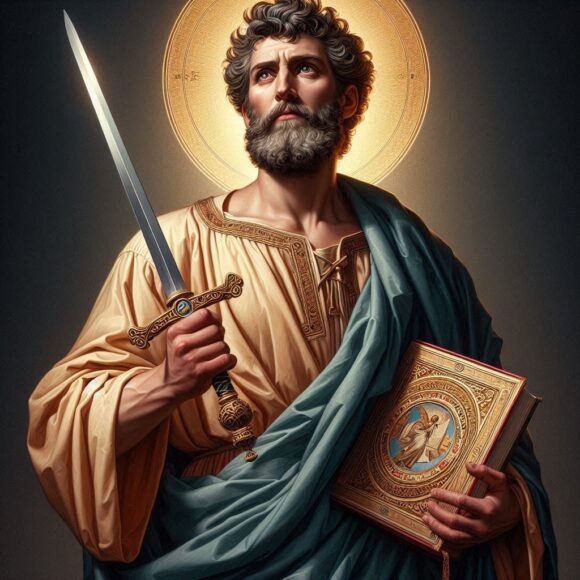
The Conversion to Paul the Apostle
Our understanding of the transformative journey from Saul to Paul is pivotal in comprehending the spread of early Christianity. Saul’s encounter with Jesus Christ on the road to Damascus was a moment of profound change, not just for him but for the entire Christian faith. This experience is celebrated in art and literature, such as in the ‘The Conversion of St. Paul’ by Caravaggio, and is a cornerstone of our faith narrative.
The vision of Christ that Saul experienced was both a personal and theological epiphany. It was through this vision that Saul understood Jesus to be the promised Messiah, a revelation that would redefine his beliefs and mission. Embracing his new identity as Paul, he embarked on a mission that would see the establishment of Christian communities far and wide. His journeys were fraught with challenges, yet his unwavering commitment helped lay the foundations for the Christian church. The impact of this conversion is immeasurable, influencing Christian doctrine and practice to this day.
Missionary Journeys and Christian Expansion
First Missionary Journey
Paul’s travels took him through Cyprus and Asia Minor, where he faced both receptivity and resistance. The message of salvation through Jesus Christ resonated with many, leading to the establishment of burgeoning Christian communities.
Establishing Early Churches
In our quest to be transformed into one new humanity in Christ, we diligently worked to establish early churches. These communities became beacons of faith, hope, and love, reflecting the transformative power of the Gospel. We nurtured these fledgling groups, providing guidance and support to ensure their growth and resilience.
Challenges and Conflicts
Our journey was not without its challenges and conflicts. We contended with cultural opposition, religious disputes, and even internal disagreements within the Christian movement. Yet, through perseverance and faith, we overcame these obstacles, strengthening the foundation of the Church for generations to come.
We must remember that our mission is not merely about spreading a message; it’s about nurturing a community of believers, united in Christ.
Paul’s Theological Contributions
As we reflect on the profound impact of St. Paul on our faith, we recognize his theological insights as cornerstones of Christian doctrine. His epistles not only shaped the early Church but continue to guide us in understanding the mysteries of our faith.
Understanding of Jesus Christ
Paul’s Christology is a testament to his deep spiritual insight. He grappled with articulating the relationship between Jesus and God the Father, emphasizing Jesus’s divine nature and role as the savior. His letters, rich with Christological statements, remain pivotal in our theological discourse.
Role of the Law and Grace
In our journey of faith, we often ponder the balance between the Law and grace. Paul taught that while the Law is holy, it is through grace that we are saved. This understanding has been instrumental in shaping our approach to salvation and the Christian life.
Concept of the Body of Christ
We, as the Church, draw inspiration from Paul’s concept of the Body of Christ. He envisioned a community united in diversity, where each member contributes to the whole. This metaphor continues to inform our ecclesiology and our commitment to living as one body in Christ.
In our observance of Holy Week, we are reminded of the passion, death, and resurrection of Jesus Christ. Paul’s theological contributions deepen our appreciation for this sacred time and inspire us to renew our Christian life.
The Legacy of St. Paul
We, as members of the Christian community, recognize the profound impact that St. Paul has had on our faith and practices. His teachings and writings have been instrumental in shaping the doctrine and guiding the growth of Christianity throughout the centuries.
Influence on Christian Doctrine
St. Paul’s theological insights have deeply influenced Christian doctrine, particularly his understanding of the relationship between God the Father and Jesus, and the mystical union of believers with the divine. His interpretation of the law and grace has been foundational in the development of Christian ethics and morality.
- Monotheism: Emphasizing the oneness of God.
- Christology: Exploring the nature and role of Jesus Christ.
- Faith in Christ: Underlining the importance of belief for salvation.
- The body of Christ: Illustrating the church as a unified entity.
Writings and Epistles
The epistles of St. Paul are among the most significant writings in the New Testament, offering guidance and instruction to early Christian communities. His letters address a range of topics, from organizational issues to profound theological questions, and continue to be a source of inspiration and instruction for Christians today.
- Romans
- 1 and 2 Corinthians
- Galatians
- Ephesians
- Philippians
- Colossians
- 1 and 2 Thessalonians
- 1 and 2 Timothy
- Titus
- Philemon
Saint Paul in Art and Literature
St. Paul’s influence extends beyond theological circles and into the realms of art and literature. His life and teachings have inspired countless works, from classical paintings to modern literary interpretations, reflecting his enduring legacy in the cultural imagination.
We cherish the artistic and literary depictions of St. Paul, which serve as a testament to his lasting influence on our culture and spirituality.
What Is The Significance Of Saint Paul The Apostle?
Saint Paul the Apostle’s significance lies in his role as a major proponent of Christianity’s spread beyond Jewish communities. His missionary work extended the reach of Christian teachings across the Roman Empire, establishing the church as a universal institution.
His epistles—letters to early Christian communities—address complex theological issues and practical aspects of church life. These writings form a substantial part of the New Testament and continue to influence Christian thought and practice today.
Furthermore, Paul’s life story, from his conversion to his martyrdom, serves as an inspiring narrative of faith, dedication, and perseverance, offering a powerful example for Christians throughout the ages.
Who Was Saint Paul The Apostle?
Saint Paul was born Saul of Tarsus, in present-day Turkey. He started as a devout Jew, known for his opposition to the early Christians, whom he zealously persecuted. His conversion to Christianity occurred in a dramatic encounter with Jesus Christ on the road to Damascus, fundamentally changing his beliefs and purpose.
Thereafter, he became an apostle, though not one of the original twelve. Paul’s mission was to teach the gospel of Christ to the first-century world, and his background in both Jewish and Greco-Roman cultures made him particularly effective in this role.
His unique position as a Roman citizen and Jewish scholar allowed him to bridge cultural divides and to communicate effectively with diverse audiences, which was crucial for the spread of Christianity.
Where Was Saint Paul Born?
Saul of Tarsus, or Saint Paul, was born in the city of Tarsus, located in the Roman province of Cilicia. His birthplace contributed to his dual identity as a Jew and a Roman citizen, which later became instrumental in his missionary endeavors.
Tarsus was a significant cultural and educational center at the time, offering Paul a rich environment to obtain a strong intellectual foundation. His upbringing in this Hellenistic city provided him with the tools to engage with philosophical and theological debates of his era.
When Did Saint Paul Die?
While the exact date of Saint Paul’s death is not definitively known, it is widely believed that he was martyred in Rome around 64-65 AD, during the reign of Emperor Nero. According to tradition, he was beheaded, a method of execution typically reserved for Roman citizens.
His death came after years of spreading the Christian message through his missionary journeys and after having written many of his influential epistles.
What Is The Story Of Saul To Paul In The Bible?
The transformation of Saul to Paul is one of the most profound narratives in the Christian faith. Saul, a Pharisee and zealous persecutor of Christians, experienced a divine revelation while on his way to Damascus to arrest followers of Jesus.
A blinding light from heaven struck him, and he heard the voice of Jesus asking, “Saul, Saul, why do you persecute me?” This moment led to his conversion and subsequent baptism by Ananias of Damascus, after which Saul adopted the name Paul and began preaching the gospel he once tried to destroy.
What Are The Writings Of Saint Paul The Apostle?
The writings of Saint Paul, known as the Pauline epistles, are a cornerstone of the New Testament. Among these are Romans, 1 and 2 Corinthians, Galatians, Ephesians, Philippians, Colossians, 1 and 2 Thessalonians, 1 and 2 Timothy, Titus, and Philemon. While the authorship of some of these texts is debated, their influence on Christian doctrine is indisputable.
These letters address doctrinal teachings, ethical guidelines, and the organization of the early church. They also offer insights into the challenges faced by the young Christian communities and Paul’s relationship with them.
What Is The Influence Of Saint Paul The Apostle?
Saint Paul’s influence extends far beyond the early church. His theological perspectives helped shape the development of Christian doctrine, particularly on issues such as salvation by faith, the nature of Jesus Christ, and the role of the church.
His missionary methodology, characterized by adaptability and engagement with diverse cultures, set a precedent for Christian evangelization. Paul’s example as a tentmaker who supported himself financially also set a model for ministers working within their communities.
Moreover, his emphasis on love, grace, and freedom in Christ continues to resonate with believers, offering a foundation for Christian ethics and spirituality.
Saint Paul, Doctor and Apostle
Below is an excerpt from the book “The Golden Legend” or “Lives of the Saints”:
“S. Paul the apostle, after his conversion, suffered many persecutions, the which the blessed Hilary rehearsed shortly, saying: Paul the apostle was beaten with rods at Philippi, he was put in prison, and by the feet fast set in stocks, he was stoned in Lystra. In Iconia and Thessalonica he was pursued of wicked people. In Ephesus he was delivered to wild beasts. In Damascus he was let by a lepe down of the wall. In Jerusalem he was arrested, beaten, bound, and awaited to be slain. In Caesarea he was enclosed and defamed. Sailing towards Italy he was in peril of death, and from thence he came to Rome and was judged under Nero, and there finished his life. This saith S. Hilary: Paul took upon him to be apostle among the gentiles. In Lystra was a contract which he lost and redressed. A young man that fell out of a window and died, he raised to life and did many other miracles. At the Isle of Melita a serpent bit his hand, and hurt him not, and he threw it into the fire. It is said that all they that came of the progeny and lineage of that man that then harboured Paul may in no wise be hurt of no venomous beasts, wherefore when their children be born, they put serpents in their cradles for to prove if they be verily their children or no. In some place it is said that Paul is less than Peter, otherwhile more, and sometimes equal and like, for in dignity he is less, in preaching greater, and in holiness they be equal. Haymo saith that Paul, from the cockcrow unto the hour of five, he laboured with his hands, and after intended to preaching, and that endured almost to night, the residue of the time was for to eat, sleep, and for prayer, which was necessary. He came to Rome when Nero was not fully confirmed in the empire, and Nero hearing that there was disputing and questions made between Paul and the Jews, he, recking not much thereof, suffered Paul to go where he would, and preach freely.
Jeronimus saith in his book, De viris illustribus, that the thirty-sixth year after the Passion of our Lord, the second year of Nero, S. Paul was sent to Rome bound, and two years he was in free keeping and disputed against the Jews, and after, he was let go by Nero, and preached the gospel in the west parts. And the fourteenth year of Nero, the same year and day that Peter was crucified, his head was smitten off. Haec Jeronimus. The wisdom and religion of him was published overall and was reputed marvellous. He got to him many friends in the emperor’s house and converted them to the faith of Christ, and some of his writings were recited and read tofore the emperor, and of all men marvellously commended, and the senate understood of him by things of authority.
It happed on a day that Paul preached about evensong time in a loft, a young man named Patroclu8, butler of Nero, and with him well-beloved, went for to see the multitude of people, and the better for to hear Paul he went up into a window, and there sleeping, fell down and died, which when Nero heard he was much sorry and heavy therefor, and anon ordered another in his office. Paul knowing hereof by the Holy Ghost, said to them standing by him that they should go and bring to him Patroclus, which was dead, and that the emperor loved so much. Whom when he was brought, he raised to life and sent him with his fellows to the emperor, whom the emperor knew for dead, and, whiles he made lamentation for him, it was old to the emperor that Patroclus had come to the gate. And when he heard that Patroclus was alive, he much marvelled, and commanded that he should come in. To whom Nero said: Patroclus, livest thou? And he said: Yea, emperor, I live; and Nero said: Who hath made thee to live again? And he said: The Lord Jesu Christ, king of all worlds. Then Nero being wroth said: Then shall he reign ever and resolve all the royalmast of the world? To whom Patroclus said: Yea, certainly, emperor; then Nero gave to him a buffet, saying: Therefore, thou servest him, and he said: Yea, verily, I serve him that hath raised me from death to life. Then five of the ministers of Nero, that assisted him, said to him: O emperor, why smitest thou this young man, truly and wisely answering to thee? Trust verily we serve that same King Almighty. And when Nero heard that he put them in prison, for strongly to torment them, whom he much had loved. Then he made to enquire and to take all Christian men, and without examination made them to be tormented with over great torments.
Then was Paul among others bound and brought tofore Nero, to whom Nero said: O thou man, servant of the great King, bound tofore me, why withdrawest thou my knights and drawest them to thee? To whom Paul said : Not only from thy corner I have gathered knights, but also I gather from the universal world to my Lord, to whom our king giveth such gifts that never shall fail, and granted that they shall be excluded from all indigence and need ; and if thou wilt be to him subject, thou shalt be safe, for he is of so great power that he shall come and judge all the world, and destroy the figure thereof by fire. And when Nero heard that he should destroy the figure of the world by fire, he commanded that all the Christian men should be burnt by fire, and Paul to be beheaded, as he that is guilty against his majesty. And so great a multitude of Christian people were slain then, that the people of Rome brake up his palace and cried and moved sedition against him, saying: Caesar, amend thy manners and attemper thy commandments, for these be our people that thou destroyest, and defend the empire of Rome. The emperor then dreading the noise of the people, changed his decree and edict that no man should touch ne hurt no Christian man till the emperor had otherwise ordained.
Wherefore Paul was brought again tofore Nero, whom as soon as Nero saw, he cried and said: Take away this wicked man and behead him, and suffer him no longer to live upon the earth. To whom Paul said: Nero, I shall suffer a little while, but I shall live eternally with my Lord Jesu Christ. Nero said: Smite off his head, that he may understand me stronger than his king, that when he is overcome, we may see whether he may live after. To whom Paul said : To the end that thou know me to live everlastingly, when my head shall be smitten off, I shall appear to thee living, and then thou mayest know that Christ is God of life and of death* And when he had said this he was led to the place of his martyrdom, and as he was led, the three knights that led him said to him : Tell to us, Paul, who is he your king that ye love so much that for his love ye had die than live, and what reward shall ye have therefor? Then Paul preached to them of the kingdom of heaven and of the pain of hell, in such wise that he converted them to the faith, and they prayed him to go freely whither he would. God forbid, brethren, said he, that I should dee, I am not fugitive, but the lawful knight of Christ. I know well that from this transitory life I shall go to everlasting life. As soon as I shall be beheaded, true men shall take away my body; mark ye well the place, and come thither tomorrow, and ye shall find by my sepulchre two men, Luke and Titus, praying. To whom when ye shall tell for what cause I have sent you to them, they shall baptize you and make you heirs of the kingdom of heaven. And whiles they thus speak together, Nero sent two knights to look if he were slain and beheaded or no, and when thus S. Paul would have converted them, they said: When thou art dead and risest again, then we shall believe, now come forth and receive that thou hast deserved.
And as he was led to the place of his passion in the gate of Hostence, a noble woman named Plautilla, a disciple of Paul, who after another name was called Lemobia, for haply she had two names, met there with Paul, which weeping, commended her to his prayers. To whom Paul said: Farewell, Plautilla, daughter of everlasting health, lend to me thy veil or kerchief with which thou coverest thy head, that I may bind mine eyes therewith, and afterwards I shall restore it to thee again. And when she had delivered it to him, the butchers scorned her, saying: Why hast thou delivered to this enchanter so precious a cloth for to lose it? Then, when he came to the place of his passion, he turned him toward the east, holding his hands up to heaven right long, with tears praying in his own language and thanking our Lord ; and after that bade his brethren farewell, and bound his eyes himself with the kerchief of Plautilla, and kneeling down on both knees, stretched forth his neck, and so was beheaded. And as soon as the head was from the body, it said: Jesus Christus! which had been to him so sweet in his life. It is said that he named Jesus or Christus, or both, fifty times. From his wound sprang out milk into the clothes, of the knight, and afterward Bowed out blood. In the air was a great shining light, and from the body came a much sweet odour.
Dionysius, in an epistle to Timothy, saith or the death of Paul thus : In that hour full of heaviness, my well-beloved brother, the butcher, saying : Paul, make ready thy neck ; then blessed Paul looked up into heaven marking his forehead and his breast with the sign of the cross, and then said anon : My Lord Jesu Christ, into thy hands I commend my spirit, etc. And then without heaviness and compulsion he stretched forth his neck and received the crown of martyrdom, the butcher so smiting off his head. The blessed martyr Paul took the kerchief, and unbound his eyes, and gathered up his own blood, and put it therein and delivered to the woman. Then the butcher returned, and Plautilla met him and demanded him, saying: Where hast thou left my master? The knight answered : He lieth without the town with one of his fellows, and his visage is covered with thy kerchief, and she answered and said : I have now seen Peter and Paul enter into the city clad with right noble vestments, and also they had right fair crowns upon their heads, more clear and more shining than the sun, and hath brought again my kerchief all bloody which he hath delivered me. For which thing and work many believed in our Lord and were baptized. And this is that S. Dionysius saith.
And when Nero heard say this thing he doubted him, and began to speak of all these things with his philosophers and with his friends; and as they spake together of this matter, Paul came in, and the gates shut, and stood tofore Caesar and said : Caesar, here is tofore thee Paul the knight of the king perdurable, and not vanquished. Now believe then certainly that I am not dead but alive, but thou, caitiff, thou shalt die of an evil death, because thou hast slain the servants of God. And when he had said thus, he vanished away. And Nero, what for dread and what for anger, he was nigh out of his wit, and wist not what to do. Then by the counsel of his friends he unbound Patroclus and Barnabas and let them go where they would.
And the other knights, Longinus, master of the knights, and Accestus, came on the morn to the sepulchre of Paul, and there they found two men praying, that were Luke and Titus, and between them was Paul. And when Luke and Titus saw them, they were abashed and began to flee, and anon Paul vanished away, and the knights cried after them and said: We come not to grieve you but know ye for truth that we come for to be baptized of you, like as Paul hath said whom we saw now praying with you. When they heard that they returned and baptized them with great joy.
The head of S. Paul was cast in a valley, and for the multitude of other heads of men that were there slain and thrown there, it could not be known which it was. It is read in the epistle of S. Dionysius that on a time the valley should be made clean, and the head of S. Paul was cast out with the other heads. And a shepherd that kept sheep took it with his staff and set it up by the place where his sheep grazed; he saw by three nights continually, and his lord also, a right great light shine upon the said head. Then they went and told it to the bishop and to other good Christian men, which anon said: Truly that is the head of S. Paul. And then the bishop with a great multitude of Christian men took head with great reverence, and set it in a tablet of gold, and put it to the body for to join it thereto. Then the patriarch answered : We know well that many holy men be slain and their heads be dispersed in that place, yet I doubt whether this be the head of Paul or no, but let us set this head at the feet of the body, and pray we unto Almighty God that if it be his head that the body may turn and join it to the head, which pleased well to them all, and they set the head at the feet of the body of Paul, and then all they prayed, and the body turned him, and in his place joined him to the head, and then all they blessed God, and thus knew verily that that was the head of S. Paul. This saith S. Dionysius.”
Excerpt from the book “The Golden Legend” or “Lives of the Saints” compiled by Jacobus de Voragine, Archbishop of Genoa, 1275. First edition published 1470. Translated into English by William Caxton, first edition 1483, edited by F.S. Ellis, Temple Classics, 1900 (reprinted 1922, 1931).

